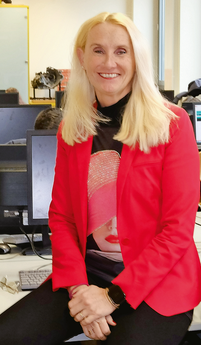Management Board members

Gabriele Schachinger - Vice President | IGIP-Austria , Secretary General | IGIP - National Section-Austria
office@igip-austria.at
bound to tradition - openness to new developments
bound to tradition - openness to new developments

Wolfgang Pachatz - President | IGIP-Austria and IGIP - National Section-Austria
office@igip-austria.at
An eye on the latest trends and an ear to the ground!
An eye on the latest trends and an ear to the ground!
CONTENT DIVISION
- Division ERASMUS+ : Rudi Ratzka (Finanzreferent)
- Division Entrepreneurship : Markus Liebhart
- Division Digital Transition : Andreas Probst
The aims of the Austrian Society for Engineering Pedagogy ( IGIP-AUSTRIA ) are
- Promotion of the scientific approach to technical education with a strong focus on pedagogy and didactics.
- Advancement of qualifications for technical specialists up to university degrees.
- International collaboration with societies and networks in engineering education and vocational training (e.g., IEEE, ASEE, SEFI, IFEES).
- Engagement in research and development to create and implement innovative teaching and learning methods for effective knowledge transfer.
- Collaboration with universities, universities of applied sciences, and enterprises to foster educational innovations.
- Organization of events (e.g., conferences, symposia, summer schools) for international knowledge sharing and dialogue.
- Certification of educational institutions in the field of entrepreneurship education in engineering at the secondary school level.
- Development of a certification model for Green Skills at secondary schools to support the goals of the Green Deal.
- Support of national and international initiatives for the Green Transition, particularly through cooperation with projects like Greenovet and GRETA.
- Promotion of skill exchange and competency development through international working groups and the qualification of engineering educators (ING-PAED IGIP) for state-of-the-art teaching technologies.
These goals contribute to improving technical education and promoting international standards and innovations in engineering education.
In this context, the focus is also on the educator. Specifically, the competencies that educators will need in the future:
- Digital Literacy and Technology Integration: Proficiency in using digital tools and platforms to enhance teaching, manage virtual classrooms, and integrate emerging technologies into lessons.
- Adaptability and Flexibility: Ability to quickly adjust teaching methods and curricula in response to new educational trends, technologies, and student needs.
- Innovative Pedagogical Skills: Knowledge and implementation of innovative teaching strategies that foster active learning, critical thinking, and problem-solving skills.
- Data-Driven Decision Making: Ability to analyze and interpret student data to tailor instruction, track progress, and improve learning outcomes.
- Sustainability and Green Skills Education: Understanding of sustainability issues and competence in teaching green skills to prepare students for environmentally focused careers.
- Cultural Competence and Inclusivity: Skills to create an inclusive learning environment, effectively teach diverse student populations, and integrate multicultural perspectives into the curriculum.
- Entreurpreneurship and Real-World Application: Ability to teach entrepreneurial thinking and connect classroom learning with real-world applications, particularly in technical and engineering fields.
- Collaboration and Networking: Ability to work within national and international educational networks, participate in collaborative projects, and foster partnerships with other institutions and industries.
- Lifelong Learning and Professional Development: Commitment to continuous personal and professional development to keep up with advancements in educational methodologies, technologies, and subject matter expertise.
- Emotional Intelligence and Social Skills: Capacity to support students’ emotional and social development by understanding their needs, promoting empathy, and effectively managing classroom dynamics.
- Green Transition Awareness: Understanding of policies and practices related to the Green Transition, enabling educators to incorporate sustainability-focused goals into their teaching.
These competencies are essential for educators to effectively prepare students for a rapidly evolving world and to meet the demands of modern education
IGIP Austria is a non-profit organization dedicated to enhancing the scientific nature of education in technical disciplines, with a strong focus on pedagogy and didactics. For the transfer of knowledge international conferences, symposia, summer schools,…are offered. International working groups promote mutual exchange.
